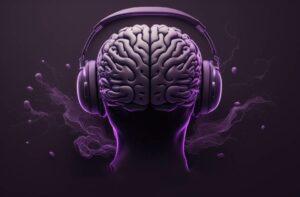Unconscious communication refers to the nonverbal cues and signals that individuals transmit and receive, often without being aware of them. In mental self-help, understanding and improving one's unconscious communication can be a valuable tool for building stronger relationships and improving interpersonal communication.
Unconscious communication can take many different forms, such as body language, facial expressions, tone of voice, and even the use of space and proximity. These cues and signals can convey a wide range of emotions, attitudes, and intentions, often without individuals being aware of them.
One important aspect of understanding unconscious communication in mental self-help is the ability to become more self-aware of one's own nonverbal cues and signals. By becoming more conscious of how one communicates nonverbally, individuals can improve their ability to convey their intended messages and reduce the risk of unintentionally sending mixed or negative signals.
Another important aspect of understanding unconscious communication in mental self-help is the ability to become more attuned to the nonverbal cues and signals of others. By developing the ability to read and interpret the nonverbal cues and signals of others, individuals can improve their ability to understand and connect with others and can build stronger and more meaningful relationships.
Unconscious communication
To become more aware of unconscious communication, try the following strategies:
* Observe nonverbal cues: Pay attention to body language, facial expressions, and tone of voice, as these can convey valuable information about emotions and intentions.
* Practice active listening: Focus on truly understanding the other person's perspective, including any underlying emotions or messages they may be conveying unconsciously.
* Reflect on your emotions: Become more aware of your own emotions, as these can influence your unconscious communication and the way you interpret others' signals.
* Seek feedback: Ask others for feedback on your communication style, including any unconscious signals they may have noticed.
* Develop mindfulness: Practise mindfulness exercises, such as meditation or deep breathing, to increase self-awareness and improve your ability to recognise unconscious communication.
* Observe nonverbal cues: Pay attention to body language, facial expressions, and tone of voice, as these can convey valuable information about emotions and intentions.
* Practice active listening: Focus on truly understanding the other person's perspective, including any underlying emotions or messages they may be conveying unconsciously.
* Reflect on your emotions: Become more aware of your own emotions, as these can influence your unconscious communication and the way you interpret others' signals.
* Seek feedback: Ask others for feedback on your communication style, including any unconscious signals they may have noticed.
* Develop mindfulness: Practise mindfulness exercises, such as meditation or deep breathing, to increase self-awareness and improve your ability to recognise unconscious communication.
Unconscious communication can impact relationships in various ways:
* Misinterpretation: Unconscious signals may be misinterpreted or misunderstood, leading to confusion or conflict in relationships.
* Emotional connection: Being attuned to unconscious communication can help you develop a deeper emotional connection with others, fostering empathy and understanding.
* Authentic expression: Becoming aware of your own unconscious communication can help you express yourself more authentically and accurately, promoting more effective communication in relationships.
* Hidden agendas: Unconscious communication may reveal underlying emotions, intentions, or issues that are not being directly addressed, providing valuable insights for resolving conflicts or addressing unmet needs.
* Misinterpretation: Unconscious signals may be misinterpreted or misunderstood, leading to confusion or conflict in relationships.
* Emotional connection: Being attuned to unconscious communication can help you develop a deeper emotional connection with others, fostering empathy and understanding.
* Authentic expression: Becoming aware of your own unconscious communication can help you express yourself more authentically and accurately, promoting more effective communication in relationships.
* Hidden agendas: Unconscious communication may reveal underlying emotions, intentions, or issues that are not being directly addressed, providing valuable insights for resolving conflicts or addressing unmet needs.
To improve your unconscious communication skills, consider these tips:
* Be mindful of your body language: Maintain an open and relaxed posture, make appropriate eye contact, and use gestures that convey your intended message.
* Monitor your tone of voice: Be aware of the pitch, volume, and inflection of your voice, ensuring it aligns with your intended message.
* Develop emotional awareness: Cultivate an understanding of your own emotions and how they may be influencing your unconscious communication.
* Practice empathy: Put yourself in the other person's shoes, trying to understand their perspective and emotions.
* Seek feedback and support: Ask for feedback from trusted friends or colleagues and consider seeking professional guidance, such as from a therapist or coach, to further develop your unconscious communication skills.
* Be mindful of your body language: Maintain an open and relaxed posture, make appropriate eye contact, and use gestures that convey your intended message.
* Monitor your tone of voice: Be aware of the pitch, volume, and inflection of your voice, ensuring it aligns with your intended message.
* Develop emotional awareness: Cultivate an understanding of your own emotions and how they may be influencing your unconscious communication.
* Practice empathy: Put yourself in the other person's shoes, trying to understand their perspective and emotions.
* Seek feedback and support: Ask for feedback from trusted friends or colleagues and consider seeking professional guidance, such as from a therapist or coach, to further develop your unconscious communication skills.
Related Semantic Entities for Unconscious communication
